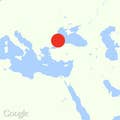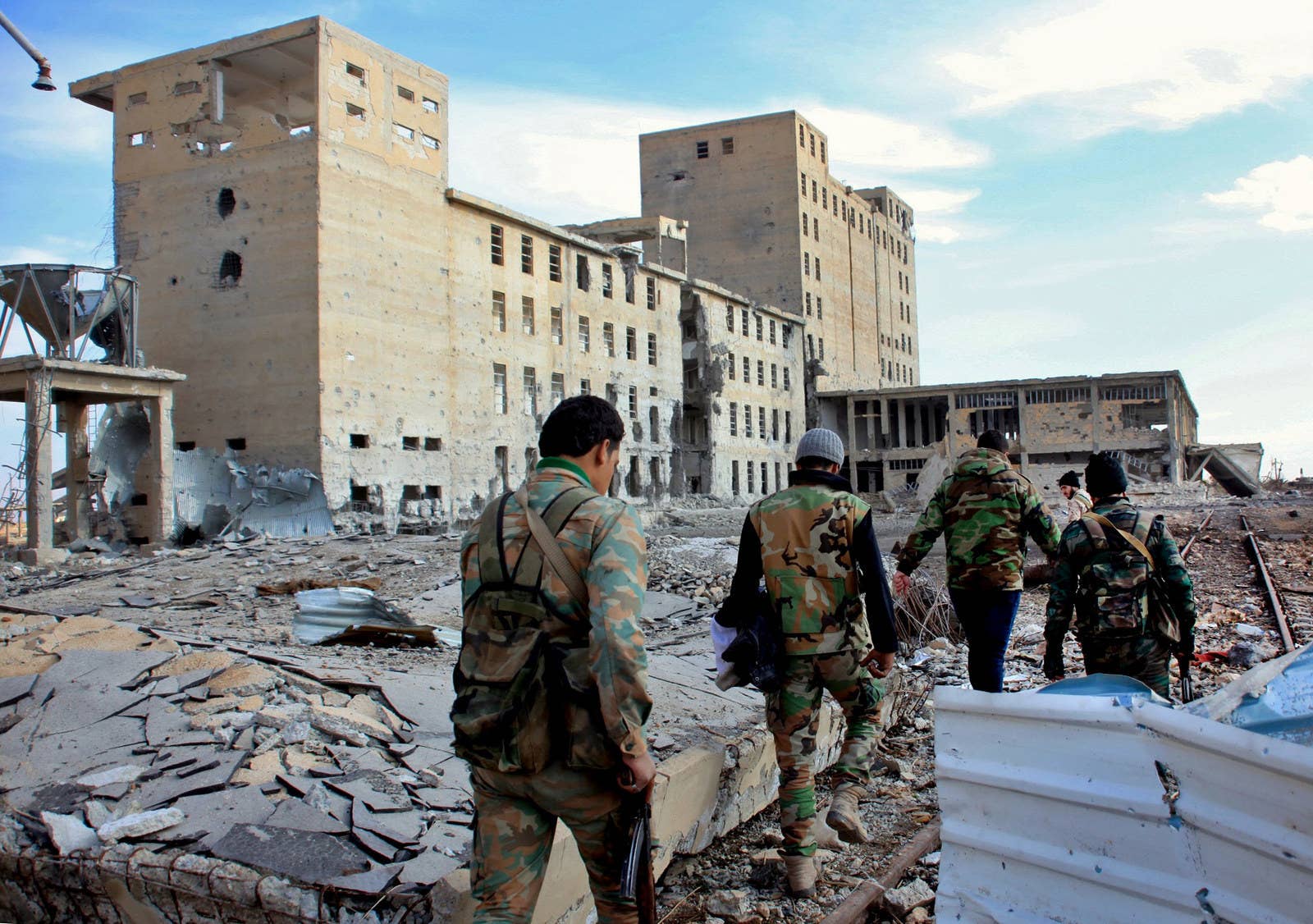
ISTANBUL — Sara Khaled and her family had finally had enough. She had withstood more than four years of revolution and civil war, culminating in the siege by ISIS of her regime-controlled neighborhood. The misery was too much too bear: Food was scarce, medicine even scarcer. She and five members of her immediate family decided to leave the city of Deir Ezzor late last summer.
But first they had to pay a toll — a fee of 300,000 Syrian pounds per person, or about $1,300 — to Major General Issam Zahreddine and Major General Mohammad Kaddour, Syrian regime commanders of the military in the area — to get past the first checkpoint. Then they arrived at a second checkpoint, where regime soldiers also demanded a bribe.
“You have to claim that your relative is dying,” the 24-year-old petrochemical engineer told BuzzFeed News from Germany. “‘I have a sick person; he’s about to die,’ so they feel sorry for you and give you permission to leave. But none of this is free. When we left, we paid hundreds of thousands of Syrian pounds so that we and our car and our family could leave safely.”
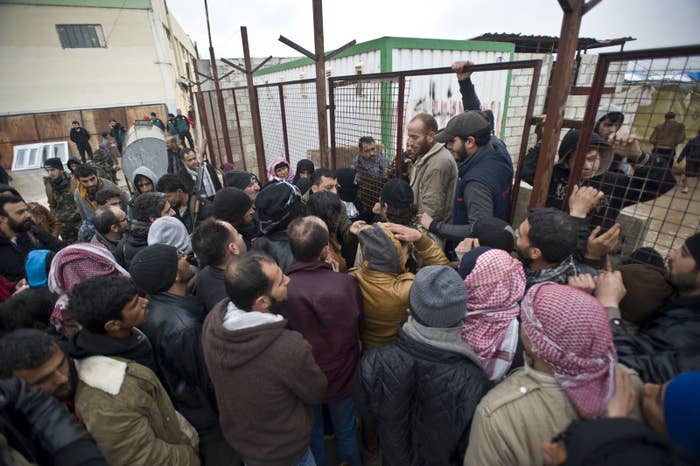
The regime of Bashar al-Assad has come under international scrutiny for imposing crippling sieges on rebel-held areas, leading to the starvation deaths of scores of civilians, including children. Such sieges are a time-honored method of warfare, an attempt to force a rebellious population to submit or die. The U.N. is currently investigating whether the Syrian regime’s deprivations amount to war crimes as Assad’s forces, backed by Iranian militias and Russian airstrikes, are on the verge of placing the country’s largest city, Aleppo, under siege.
"Such methods of warfare are prohibited under international humanitarian law and violate core human rights obligations with regard to the rights to adequate food, health and the right to life, not to mention the special duty of care owed to the well-being of children," Paulo Pinheiro, chairman of the U.N. commission investigating war crimes in Syria, said in a letter to Reuters.
“The men of the regime are benefiting. All business is happening under their supervision.”
Less scrutinized are the mechanics of how the regime and its denizens are profiting financially from sieges, including from those under its own authority in loyalist neighborhoods.
The city of Deir Ezzor is effectively divided into two sections: The western part is held by the regime and an eastern part is under ISIS control. The regime-controlled districts have been under siege by ISIS for 13 months, leading to a deterioration of the humanitarian situation in those neighborhoods. But what’s hurting civilians even more is the profiteering by regime officials purporting to be their protectors.
According to interviews with more than half a dozen people from Deir Ezzor, regime officials are behind the exorbitant prices that drive people to leave those areas while at the same time profiting by charging ever more exorbitant fees to those who exit. Since Khaled’s departure last summer, the price to get out of Deir Ezzor has jumped from between 400,000 Syrian pounds per head (almost $2,000) to 1 million Syrian pounds (over $4,500) for a seat on a helicopter, say residents.
“After losing the oil fields in Deir Ezzor, [the regime is] profiting from those leaving, and it’s allowing them to stay strong in the city,” said Karam al-Hamad, a political activist from Deir Ezzor, speaking to BuzzFeed News from southern Turkey.
In addition, regime officials jack up prices for food and fuel and sell international aid at a profit, forcing civilians to pay for goods donated by relief organizations such as the Red Cross or the United Nations. Pro-regime businessmen buy homes and cars on the cheap for those desperate to finance their escapes.
“There’s a huge extortion racket going on in Deir Ezzor, where the regime takes bribes for getting people onto helicopters to safety,” said James Sadri, director of the Syria Campaign, a Beirut- and New York-based advocacy group campaigning for the protection of civilians.
The eastern, ISIS-controlled section of Deir Ezzor has witnessed a rise in prices, but nothing near the skyrocketing costs under the regime. For example, under ISIS, a pound of sugar costs about 50 cents, compared to $10 in regime-controlled neighborhoods, residents said. The disparity in prices is in large part due to the regime taking over any type of resources or aid, hiking up the prices, and selling them for a profit.
There is no evidence that Assad himself or those at the center of power in Damascus are profiting from the sieges. The money potentially fills empty local government coffers or at least lines the pockets of regional officials and well-connected merchants.
Many said they suspect ISIS or its hangers-on are collaborating with and profiting alongside the regime in the trade of supplies into the area. But uniformed members of Assad’s armed forces remain the biggest financial beneficiaries. “The smuggling business was overseen by military men themselves,” said Shadi, a Deir Ezzor journalist now based in Turkey, who asked that his full name not be used out of fear for his safety. “The men of the regime are benefiting. All business is happening under their supervision.”
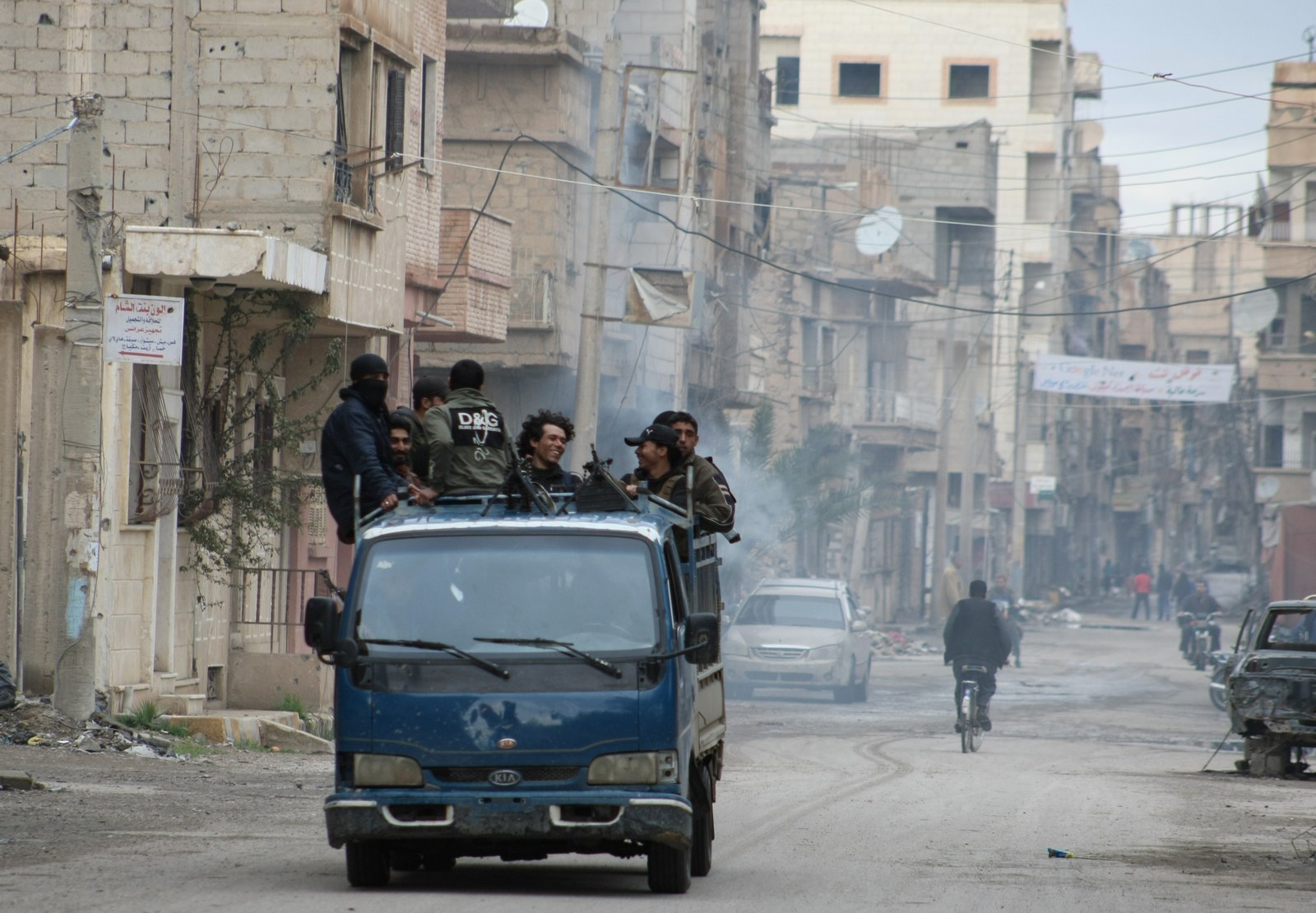
Though it has not made headlines like the reports of starving civilians in the regime-besieged town of Madaya, the humanitarian situation has deteriorated dramatically in the regime-controlled districts of Deir Ezzor since its surrounding area fell from the hands of rebels into ISIS control in July 2014.
There’s very little if any electrical power. Water comes every fourth day for four hours. One journalist from the city said nearly 40 people had starved to death, including a child and two infants. Prices for basic staples have skyrocketed. A kilogram of low-quality, undrinkable tea costs 15,000 Syrian pounds, or $68. Packets of powdered juice that used to each cost 5 Syrian pounds, or 2 cents, are now 40 times the price, costing 200 Syrian pounds, approximately $1. Two pounds of sugar can cost 4,500 Syrian pounds, over $20. A January analysis by the Financial Times showed that Deir Ezzor is under even more price pressure than other besieged areas, including rebel strongholds in eastern Damascus.
“There is no food; they’re planting some grass and eating it,” said Hamad, whose father remains in Deir Ezzor and has withered to 90 pounds. “Bread was keeping them alive, but now it’s gone.”
Khaled said daily expenditures for her family had skyrocketed to 6,000 Syrian pounds, about $27, unsustainable on her father’s university professor monthly salary of 45,000 Syrian pounds, a little over $200. “God help the others who could not even get food,” she said.
In addition to price gouging by unscrupulous merchants, prices are also driven up by the bribes, tolls, and taxes traders and truckers must pay to get permissions to make their way. Vendors pass on the increased prices to consumers.
“By the time merchandise reaches the civilian for about 10 times the original price,” said Hamad, the activist, “there are families paying 4,500 syrian pounds [$20] for a kilogram of rice when their monthly salary is 20,000 Syrian pounds [$91]. They already don’t have money.”
Aid groups have urged international powers to parachute bundles of food into areas besieged by the Syrian regime or the tiny number of pro-Assad areas surrounded by Syrian rebels. But those in Deir Ezzor reject the idea of food drops, which they say the regime has also managed to cash in on.
“The partners on the ground are thieves,” said Hamad. “There should be people on the ground who take the help and distribute it on the families, because otherwise they’ll be stolen and sold back to the families.”
Numerous times since their bombing campaign began last year, Russians have air-dropped food to various neighborhoods in the regime-controlled part of the city, said several residents. Days later, the goods began showing up at the market at huge markups. “The Russian planes sent aid through parachutes with sugar and rice and basic food aid,” said Shadi. “There have been four or five shipments dropped. All is being sold. The military and regime took what they want and sell the remaining for inflated prices.”
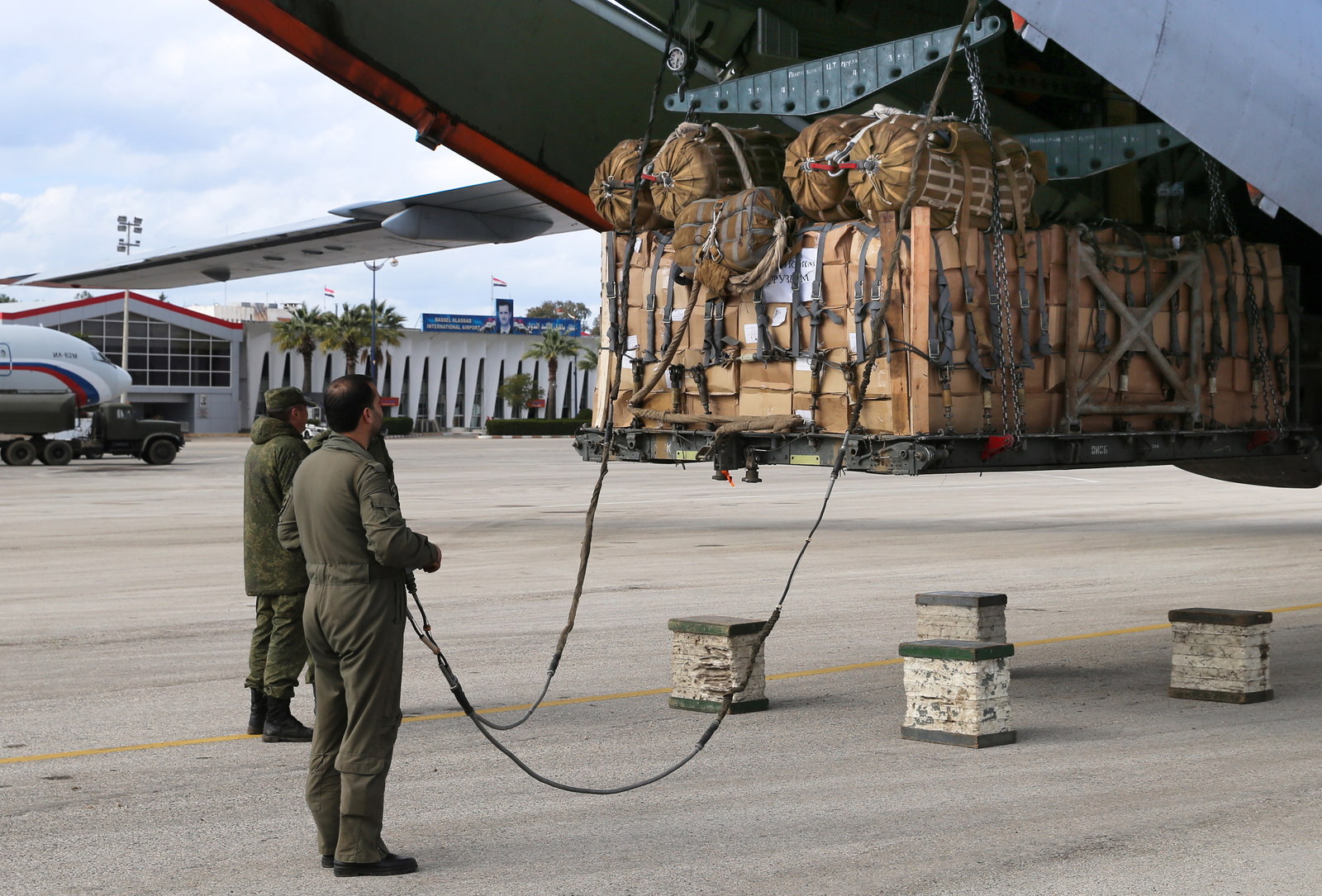
The moment the aid lands, regime enforcers arrive. “They surround it and take it away,” said Moaz al-Nasser, a member of the Deir Ezzor Local Council. “The people don’t say anything. They can’t say anything. They take the aid and sell it for a high price to traders; the traders then sell it for a profit.”
Germany and other countries have recently sought to alleviate Syrians’ suffering by donating hundreds of millions of dollars for food aid. But even this aid, often delivered via trucks, can become a cash cow for the regime. Shadi said 162 tons of humanitarian aid had been delivered to the families of besieged areas of the city since the beginning of 2015. But there have been only two distributions of that aid. “In May families were twice given two kilos of rice and two of cooking oil. In August, they were given five pieces of soap and that’s it.”
International aid officials say they are aware of the pilfering of humanitarian goods for profit. Aid workers have discovered food at high prices inside areas like Madaya or Homs. “People are talking about a kilogram of rice for $100,” said Abeer Etefa, a Cairo-based spokeswoman for the World Food Programme. “I’m sure it is happening.
"But we have to make a calculated risk on whether to send food in and take the chance that some winds up on the market or prevent any food from getting in. We make these decisions on a case-by-case basis.”
As conditions deteriorate, more and more people are deciding to sell off their assets and pay the exorbitant fees to leave.
Last summer, Bahaa, a 32-year-old pharmacist, sought to get a coveted permit to leave Deir Ezzor, a process that went on for over six months. He asked anyone who managed to leave how they did it, but many were too scared to share their contacts. He began hanging out in cafes frequented by the shabiha, volunteer regime enforcers. “We would talk in the corner inconspicuously,” he recalled. “We would chat and I would try to negotiate a price and what day I would get the permission, whether it was by land or air.”
After numerous disappointments, he found a channel that could get him out. He handed 250,000 Syrian pounds, more than $1,100, to a trusted third party, who agreed to release the money to the shabiha official once he had flown out of Deir Ezzor.
“They tell you the time and date of the flight,” said Bahaa, who is now in southern Turkey. “You go to a certain point, where a military bus comes and picks you up. There are three or four lists of people waiting to get on the helicopter, and whether you board that day or not depends on the number coming in, the weather, the number of wounded, the amount of ammunition.”
Those who leave by land are closely scrutinized and possibly held for a few days and even beaten or tortured by ISIS, but most often they are eventually cleared to leave without having to pay anything.
Khaled said braving ISIS checkpoints to leave Deir Ezzor proved more attractive than staying put. “We no longer had proper schools, we no longer had education, we no longer could place trust in the safety of young kids and children,” she said. “We are not a people just looking for food and drink and water and electricity. No — we are a people with ambitions. It was better to leave the country, because we needed to look for better life opportunities.”


